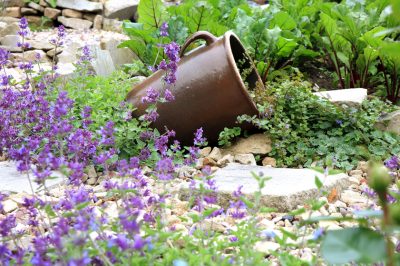Ground Ivy can be found almost everywhere on fallow land, meadows and gardens. Often, the creeping plant is considered a troublesome weed. Yet it is a proven medicinal herb for centuries, the effect of which has been scientifically proven. In addition, ground ivy, as the plant is also called, is used as a seasoning herb in the kitchen.

- Use of ground ivy in home and garden
- Ornamental plant in the garden
- Seasoning and salad herb in the kitchen
- Medicinal plant for internal and external use
- Care for ground ivy in the garden
Ground ivy is undemanding and grows almost everywhere. The herb is ideal for greening with it dark, damp corner. It can be planted anywhere where ivy thrives.
But be careful! The plant is very strong tendrils and takes the whole garden, if its spread is not controlled. The long tendrils must be regularly cut off and removed, as they give rise to many offshoots.
Ground ivy in the kitchen
Ground ivy has very spicy leaves that taste somewhat minty. They contain a lot of vitamin C and are therefore a healthy addition to wild cabbage salads.
Dried or fresh, tansy leaves are suitable as a seasoning herb. It can be added to all dishes that are also seasoned with thyme or mint.
The healing properties of Ground Ivy
Even Hildegard von Bingen recognized the healing properties of Ground Ivy for inflammations. The medicinal herb contains essential oils that have an anti-inflammatory effect. It was used then as now for the healing of purulent wounds.
The leaves are crushed and applied externally to wounds as a compress. There they support the wound healing. By the way, Ground Ivy can be used to make a bath additive that has a skin-caring effect.
As a tea or tincture, Ground Ivy can be used as part of a medical treatment. It is recommended for persistent colds, loss of appetite and internal inflammations. The tannins and bitter substances contained in the ground ivy stimulate the metabolism and have an effect on loss of appetite.
Tips
For humans, ground ivy is not poisonous. The situation is different for animals. Meadows overgrown with ground ivy are not suitable for keeping livestock or placing rodent cages, as animals can become seriously ill from the herb.

